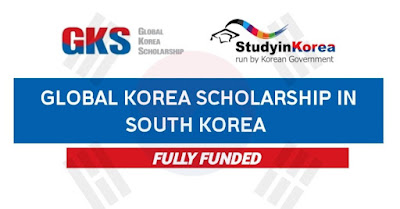3 Tips on How to Become a GKS Scholar
I studied in South Korea for three years under the Global Korea Scholarship Program or GKS, formerly known as the Korean Government Scholarship Program (KGSP). The GKS program provides opportunities for people all around the globe to learn the Korean language, be exposed to Korean culture, and do their undergraduate or post-graduate studies in South Korea.
It has a rigorous selection process which lasts for approximately six months from the time you apply until you fly to Korea, if you are fortunate to be selected as one of the scholars under the program. Each year, the Korean government opens the application period for the undergraduate program around August or September, and for the graduate programs in February. Generally, thousands of people apply every year, although that number may have increased since the popularity of Korea surged in recent times, but only a handful get selected.
So, the question that I have received occasionally is, "How do I become a GKS scholar?". This is by no means a definitive guide, nor is your selection guaranteed, but it will give you some insight on how you can increase your chances of being selected. This not only applies to Korean scholarships, but also to other countries' scholarships, as I also passed the selection procedure for the Japanese government scholarship, but had to turn it down in order to pursue the scholarship from Korea.
1. Grades are important.
Quantitative measurements of a person's academic potential are always the first criteria that selection committees will scrutinize. There is no denying this fact. You need to have good grades for them to even consider your application. However, it's not the end-all-be-all, obviously. They look at other criteria as well, such as your extracurricular achievements, involvement in social causes, leadership skills, and career experience (if you have any). Not to mention, your personal statement, statement of purpose, and recommendation letter will be meticulously examined.
2. The way you present yourself is important.
Self-presentation and expression will also be observed. And this does not only apply to the interview, but in the way you write your personal statement and statement of purpose. This is where you tell them why you applied for the scholarship and what you expect to get out of it. More importantly, they want to see how this can be a mutually beneficial relationship. Remember, they are looking for people to invest in, so they are expecting a return on that investment.
Think of it as a partnership between two countries. The Korean government is giving your country's government the opportunity to send its people to their universities to study. They may not directly ask for anything in return, but they want people who have enough discernment and foresight to know the underlying nature of this transaction.
3. The way others perceive you is important.
In regards to the recommendation letter, there are two important things to remember. First, Koreans highly value status, so it would be best to get a letter from a dean or professor in your university. Second, it's best to get someone who knows your abilities and strengths. They need to say all the positive things about your competence and potential. They need to highlight their personal observations of what makes you the best candidate to accept the scholarship.
Apart from this, when you reach the interview stage, it is very important to make a good impression. Not too much, but not too little either. What I mean by that is that you should not be over the top that it seems like you are pandering to them, nor should you be indifferent about what they might think of you. You should look confident, speak confidently, and carry yourself in a respectable and decent manner. Be yourself and be comfortable with yourself. Show them that you are mature, competent, and fit to be one of their scholars.
Other Pointers
As I said, despite these guidelines, it is not guaranteed that you will be chosen. Don't be discouraged. You can try again next year or the year after that, since they do not bar people from reapplying. Always consider other opportunities as well. This is not the only scholarship available out there, you might be chosen for a different one. Take this as a learning experience and use what you have learned when you apply for a different scholarship.
Now, personally I would suggest people to go the University track as the selection process is less rigid than the Embassy track. Basically, if you can find a university that will receive you and a professor who will supervise you, then you're all set. Whereas, if you were pursuing the Embassy track, then you have to go through several phases of selection before getting the final verdict on whether you will be a GKS scholar or not.

Comments
Post a Comment